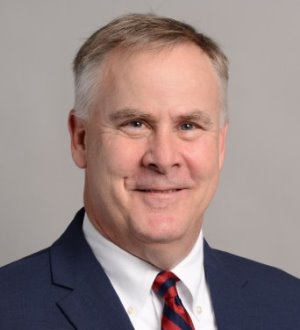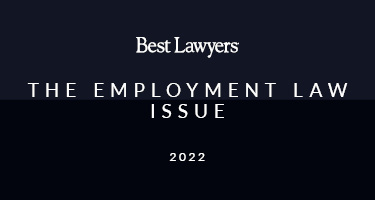Our nation’s current opioid crisis has been described as the deadliest drug epidemic in U.S. history. The number of opioid-related overdose deaths has quadrupled since 1999, according to the Centers for Disease Control and Prevention. The CDC reports that between 1999 and 2017 nearly 218,000 people have died from overdoses in the United States. As a result, American families are living with the consequences of addiction and suffering the aftermath of opioid-related deaths. The crisis also has created significant concerns for employers.
The Development of the Opioid Crisis
As noted in a recent study by the Bipartisan Policy Center, the current opioid crisis came in three waves, starting in 1996 with the development of oxycodone. Sold as OxyContin, this drug was part of a new class of painkillers marketed as cure-all solutions to pain. The pharmaceutical companies, with the assistance of physicians and clinics, became increasingly aggressive in promoting these new and stronger pain medicines as nonaddictive alternatives to other painkillers on the market. Unfortunately, the medicines are highly addictive in nature, and a crisis soon developed in the overuse and misuse of these drugs.
In 2010, the problem was exacerbated by a new formulation of OxyContin that made it more difficult to abuse by crushing and snorting. Federal and state governments also worked to limit access to prescription opioids overall. These two actions combined to create a second wave of overdose-related deaths due to the increased use of heroin as a cheap, and deadly, alternative to legal opioids. The surge in heroin use was not limited to urban communities, but spread to small towns and rural areas. Studies have confirmed that these heroin addicts became dependent after being introduced to legally prescribed painkillers.
The third wave of the crisis, per the BPC report, is due to the increased availability of illegal fentanyl and its analogs. These new drugs are both inexpensive and potent and have been responsible for many of the recent overdose deaths.
The opioid crisis has taken a heavy toll on American society, stretching government resources to a breaking point. The crisis also weighs heavily on the families affected, with overdose deaths leading to a cycle of tragic consequences for those left behind. For example, opioid-related deaths have led to a dramatic increase in the number of children in unsuitable living conditions and in need of foster care.
"These new illicit drugs are both 'cheap and powerful.' As the BPC points out, this combination "has contributed to the skyrocketing deaths from total opioid overdoses in the last few years."
The Government Response
Increasingly, additional resources are needed to address the epidemic. Both the federal and state governments have jumped in to address the problem with additional programs and increased funding. This has included a broad array of solutions, such as more funding for law enforcement and addiction services, with a focus on prevention, treatment, and recovery. The CDC is also funding critical research into the problem of addiction and overdose. This includes the development of an early warning system, such as monitoring prescription practices. This information is shared with federal, state, and local entities.
The federal response has included some significant legislation, including passage of both the Comprehensive Addiction and Recovery Act and the 21st Century Cures Act in 2016. These two pieces of legislation, designed to help stem the crisis, led to the authorization of more than $1 billion for grant programs. More recently, Congress passed the Support for Patients and Communities Act, designed to help prevent opioid misuse and to increase access to treatment. The act also permits Medicare to provide coverage for opioid treatment.
In 2017, the Trump administration declared the opioid crisis to be a public health emergency. Included in the federal government’s response is increased funding of criminal justice grant programs designed to assist states in addressing the myriad problems created by the crisis.
Most states have followed the federal government’s lead, creating and funding additional programs and designed to address the opioid epidemic. These federal and state responses are ongoing and additional efforts are expected.
Opioid Litigation: Actions Targeting the Pharmaceutical Industry
In addition to the federal and state legislative response, there have been a number of court actions filed against the pharmaceutical companies involved in the marketing of prescription opioids like OxyContin. The litigation seeks to hold Big Pharma responsible for the impact of the opioid crisis. Multiple states have filed suits alleging that some of these companies improperly marketed the opioids and misled the public about the addictive nature of the medication. The focus has been on the national litigation venued in Ohio. This case has consolidated thousands of federal lawsuits that have been brought against various pharmaceutical companies. The suit’s litigants include county governments, municipalities, hospitals, and others. The U.S. Justice Department has intervened and is participating in the action. There is some belief that this case will lead to a global settlement of these opioid-related cases.
While the Ohio litigation is still pending, one high-profile case has made its way to the courtroom. The first case was brought by the Oklahoma attorney general against multiple pharmaceutical companies. He alleged that these drug companies falsely claimed the pain-killing medications were nonaddictive and safe for use and that the marketing was deceptive and misleading, creating a “devastating health crisis” in the state. This case will prove to be a critical first view at how the opioid cases will fare before a jury. The implications will be significant.
The Role Employers Can Play to Address Addiction in the Workplace
As many businesses—both large and small—have discovered, the opioid crisis is having a significant impact on the workforce. This is especially true given that opioids are commonly prescribed to treat work-related injuries or conditions protected under the Americans with Disabilities Act. This has left employers grappling with issues of lost productivity, higher absenteeism, greater risk of workplace injuries, an increase in positive drug tests and workplace theft, and higher healthcare costs overall. Many businesses are even experiencing labor shortages due to the difficulty in hiring and retaining a sufficient number of workers who can successfully pass drug tests, leading some employers to scrap their drug-testing policies altogether.
In response, employers are being urged to become an integral part of a massive effort to help educate, support, and rehabilitate opioid-dependent workers. But how? One solution is to develop a policy that promotes a drug-free workplace but also provides support for those who succumb to addiction.
While employers cannot tolerate workplace drug use, they can develop a five-pronged approach to addressing drug abuse issues that arise in the workplace. This program would include:
(1) adoption of a comprehensive, written drug-free workplace policy
(2) detailed and comprehensive supervisor training
(3) employee education and awareness program
(4) a comprehensive employee assistance program
(5) a comprehensive drug-testing policy
This five-pronged approach to the crisis will assist managers and employees by providing educational resources and better access to treatment. In adopting these proactive steps, employers will increase morale and help to reduce the harmful impact of addiction in the workplace. Of course, these steps should not substitute for appropriate disciplinary actions and/or termination for drug-related workplace misconduct when appropriate.
Conclusion: Development of an Action Plan
The opioid crisis is now a part of the workplace landscape and, despite the best efforts of our government and health care providers, it will continue to impact the workforce in multiple ways. It is therefore important for employers to stay on top of the crisis by conducting a critical review of their current policies and procedures.
Robert M. Robenalt, a partner in the Fisher Phillips Columbus, Ohio office, has practiced labor and employment law for over 25 years. His practice is focused on advising employers on all aspects of employment law, including employee discipline, and compliance issues in various Federal and Ohio employment laws and regulations, including ADA, FMLA, and OSHA.
























